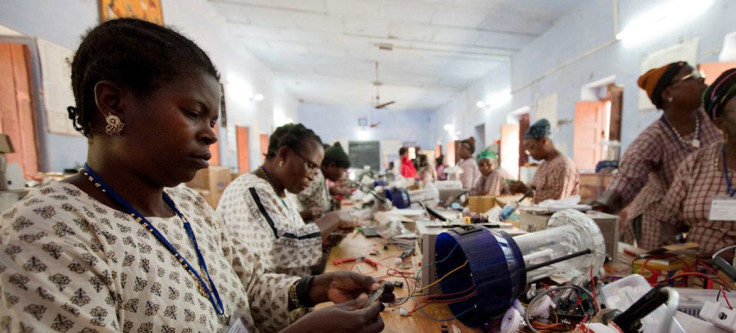Africa Trials for HIV Vaccine Discontinued as Initial Results Disappoint
The African-led trial was initiated in December 2020 but came to an early halt last month. Its conclusive findings are to be released in 2024.

A clinical trial led by African researchers concluded a year ahead of schedule after it was determined that new combination vaccines have "little or no chance" of reducing the risk of HIV.
The African-led trial, initiated in December 2020, came to an early halt last month following an interim assessment of progress. The conclusive findings are anticipated to be disclosed in late 2024.
While the examination of a pre-exposure prophylaxis pill in conjunction with the vaccines is ongoing, the administration of vaccinations to participants in the trial has been discontinued.
Dr Eugene Ruzagira, the trial director from the Uganda Virus Research Institute (UVRI) and assistant professor of epidemiology at the London School of Hygiene & Tropical Medicine, explained: "Vaccinations to PrEPVacc trial participants have been stopped because an analysis of the data collected so far by our independent data-monitoring committee has led them to conclude that there is little or no chance of demonstrating that the vaccines we are testing are reducing the risk of acquiring HIV."
The PrEPVacc trials, spearheaded by African researchers with collaboration from European scientists, assessed the efficacy of two distinct combinations of HIV vaccines in preventing infection among populations facing a particularly high risk of transmission.
The trials received financial support through a €15 million (£12.8 million) grant from the EU's European & Developing Countries Clinical Trials Partnership
Hopes were high as the scientific community eagerly awaited a breakthrough that could redefine the landscape of HIV prevention.
However, preliminary findings have fallen short of expectations, leading researchers to suspend the trial for a thorough evaluation and reassessment of the vaccine's viability.
The vaccine trial, a collaborative effort involving international research institutions, pharmaceutical companies, and African healthcare organisations, aimed to address the pressing need for an effective HIV vaccine tailored to the diverse genetic makeup of populations in the region.
The disappointment resonates not only within the scientific community but also among those hoping for a breakthrough in the ongoing battle against HIV/AIDS.
Prof Jonathan Weber, from Imperial College London, one of the trial's sponsors, said: "We do clinical trials because we don't know the answer to questions. It was important to find out whether the combination vaccine regimens in PrEPVacc, developed over 20 years, should be ruled out or further developed for preventing HIV."
The trial's pause has prompted discussions about the future direction of HIV vaccine research and the importance of continued investment and collaboration.
Advocacy groups and health organisations stress the need for sustained commitment to finding effective prevention strategies, given the enduring impact of HIV/AIDS on global public health.
Trials in South Africa assessing the RV144 vaccine, the only one demonstrating some success in HIV protection, were terminated in February 2020 due to interim results indicating its ineffectiveness.
Professor Pontiano Kaleebu, the chief investigator of PrEPVacc at UVRI, emphasised the critical importance of developing an effective HIV prevention vaccine for Africa.
He noted: "It is a goal that must have even greater urgency now that no HIV vaccines are being trialled for efficacy anywhere in the world. We have come so far in our HIV-prevention journey, but we must look to a new generation of vaccine approaches and technology to take us forward again."
Globally, approximately 39 million people are living with HIV, with over 25 million in sub-Saharan Africa.
Dr Ruzagira, speaking at an AIDS conference in Zimbabwe, expressed optimism despite the challenges, stating: "The scientific hurdles are high, but I have equally high hopes that an HIV vaccine will be developed one day."
The RV144 vaccine, initially trialled in Thailand from 2003 to 2006, demonstrated a nearly one-third reduction in infection rates after three years.
The disappointment surrounding the halted trial also reignites conversations about the socio-economic and healthcare disparities that contribute to the unequal burden of HIV/AIDS, particularly in sub-Saharan Africa.
The pursuit of an HIV vaccine continues, propelled by the unwavering commitment to overcoming obstacles and safeguarding the health of populations worldwide.
The setback, though disheartening, serves as a reminder of the resilience required in the scientific journey toward transformative breakthroughs in global health.
© Copyright IBTimes 2025. All rights reserved.






















